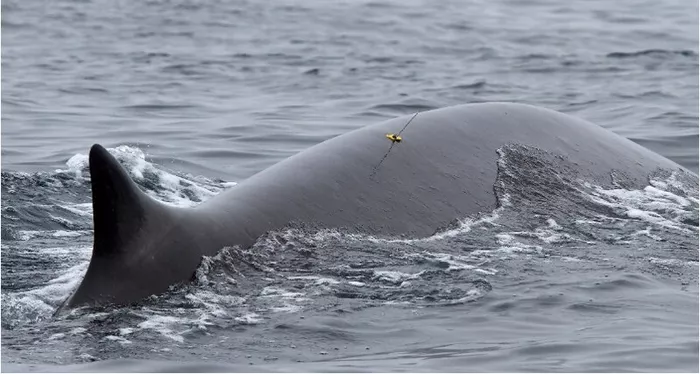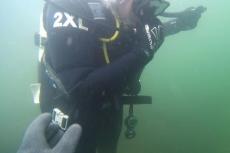New satellite tag tracks long-term whale behaviour
Researchers can now better track whale behaviour using a newly developed satellite tag.
Keeping an eye on whale behaviour is not easy, considering the fact that they travel vast distances and spend the majority of their time beneath the ocean surface.
To counter this, researchers at Oregon State University {OSU) have developed a new satellite tag that can track the whales' movements, even during dives.
Known as RDW, this new technology incorporates pressure and accelerometer sensors, thus giving the researchers the opportunity to monitor the whales’ movements underwater for several months.
According to the press release, the tag contains software that creates a behaviour summary for every dive and transmits the data via satellite. The software can also adapt to better detect key events in the accelerometer data.
“In the past we’ve been able to monitor the long-term movements of whales, but this additional information helps us better understand what they are doing in those places in 3D,” said Ladd Irvine, a senior faculty research assistant with the Marine Mammal Institute, which is part of OSU’s College of Agricultural Sciences.
Irvine is also a co-author of a paper on the findings, which was published in the journal Animal Biotelemetry.
The tags also help researchers understand how much time the whales spend in the upper 30 metres of the water column, an area considered the danger zone for whales passing through shipping lanes. Such information can then lead to better informed decisions that can help protect the whales from ship strikes.
In addition, they can also measure how whales respond to loud sounds, like the sonar used by the US Navy, sald Daniel Palacios, an endowed associate processor in whale habitats at the Marine Mammal Institute.



























